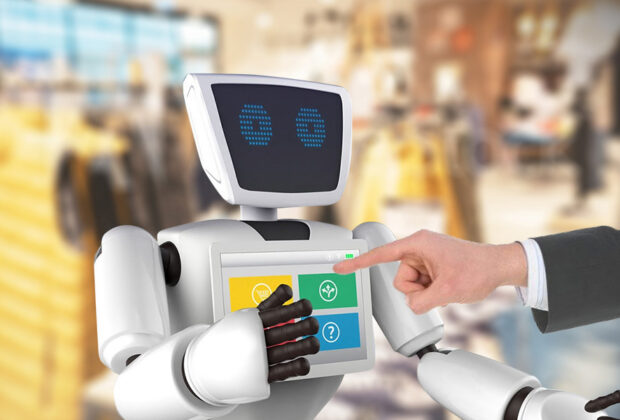The food and beverage industry has undergone a significant transformation in recent years, with the incorporation of modern technology in various aspects of the business. One such area is the adoption of point-of-sale (POS) systems, which have become an essential component of modern F&B operations.
These systems have revolutionised the way F&B businesses operate, providing a more efficient and streamlined approach to managing transactions and customer interactions. With the integration of artificial intelligence (AI) in modern POS systems, F&B businesses can now take their operations to a whole new level.
What is Artificial Intelligence in F&B POS Systems?
Artificial intelligence (AI) is a branch of computer science that aims to develop intelligent machines that can carry out activities like language translation, speech recognition, and decision-making that ordinarily need human intelligence.
In an efficient f&b pos system, AI technology is used to automate various processes, including order taking, inventory management, and customer service.
One of the primary benefits of AI in F&B POS systems is its ability to analyse data and provide insights that can help businesses optimise their operations. By analysing sales data, AI can identify trends and patterns that can help businesses make informed decisions about pricing, menu offerings, and marketing strategies.
Additionally, AI can also help businesses improve their customer service by providing personalised recommendations based on a customer’s past orders and preferences.
Benefits of AI in F&B POS Systems
- Improved Efficiency
AI-powered POS systems can significantly improve the efficiency of F&B operations. With automated order taking and payment processing, staff can focus on other tasks, such as food preparation and customer service. Additionally, AI can help businesses optimise their inventory management, ensuring that they always have the right amount of ingredients and supplies on hand.
- Enhanced Customer Service
AI can also help businesses provide better customer service. With personalised recommendations and quick order processing, customers are more likely to have a positive experience and return to the business in the future. Additionally, AI-powered chatbots can provide 24/7 customer service, answering common questions and resolving issues in real-time.
- Increased Sales
AI may assist companies in making knowledgeable choices regarding pricing, menu options, and marketing tactics by analysing sales data and spotting trends. Sales and revenue growth for the company may result from this.
- Improved Accuracy
An efficient f&b pos system can significantly reduce errors in order taking and payment processing. With automated processes, the likelihood of human error is greatly reduced, resulting in accurate transactions and fewer mistakes. This can help businesses improve their reputation and build customer loyalty.
- Cost Savings
AI-powered POS systems can also help businesses save money in the long run. By optimising inventory management and reducing waste, businesses can save on costs associated with overstocking and spoilage. Additionally, by automating processes, businesses can reduce their reliance on human labour, resulting in cost savings.
Challenges of AI in F&B POS Systems
While the benefits of AI in F&B POS systems are clear, there are also challenges that businesses need to consider. One of the primary challenges is the cost of implementing AI technology.
AI-powered POS systems can be expensive to implement, especially for small businesses with limited budgets. Additionally, businesses need to ensure that their staff is trained to use the new technology effectively.
Another challenge is ensuring the security of customer data. With AI-powered POS systems, businesses collect a significant amount of customer data, including personal information and payment details. It is essential for businesses to have robust security measures in place to protect this data from cyber threats.
Finally, businesses need to ensure that AI technology does not replace human interaction entirely. While AI can provide personalised recommendations and quick service, it is essential to maintain a human touch in customer service. Customers still value human interaction and appreciate the personal touch that comes with face-to-face interactions.
Conclusion
AI technology has the potential to revolutionise the way F&B businesses operate, providing a more efficient and streamlined approach to managing transactions and customer interactions.
With the ability to analyse data and provide insights, AI-powered POS systems can help businesses optimise their operations, improve customer service, increase sales, and reduce costs. However, businesses need to be aware of the challenges associated with implementing AI technology, including cost, security, and the need to maintain human interaction.









